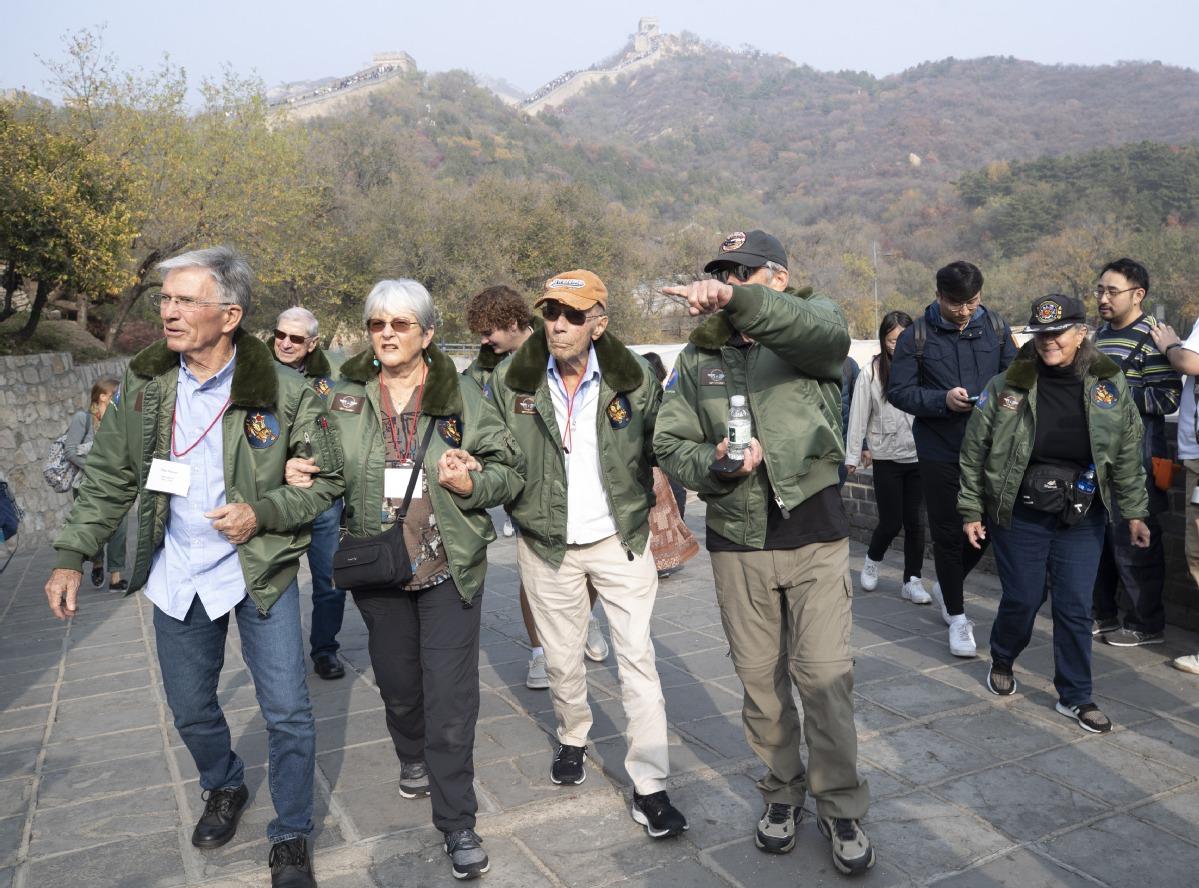 US Flying Tigers veteran Harry Moyer (third from left), who is 102, visits the Great Wall in Beijing on Sunday during an event held by the US-China Aviation Heritage Foundation. (ZOU HONG / CHINA DAILY)
US Flying Tigers veteran Harry Moyer (third from left), who is 102, visits the Great Wall in Beijing on Sunday during an event held by the US-China Aviation Heritage Foundation. (ZOU HONG / CHINA DAILY)
China and the United States should follow a policy of mutual respect, peaceful coexistence and win-win cooperation while making greater contributions to global peace and development, Vice-President Han Zheng told a delegation of Flying Tigers veterans in Beijing on Monday.
Stating that President Xi Jinping recently replied to a letter from the chairman of the Sino-American Aviation Heritage Foundation and Flying Tigers veterans, Han said the Chinese people will always remember the heroic deeds of the Flying Tigers during World War II and never forget old friends.
More than 80 years ago, China and the US fought side by side against fascism, with the Flying Tigers bombing Japanese targets and defending China in the air. The story of the Flying Tigers is a story of profound friendship forged with the blood of the two peoples.
In fact, many major challenges facing today's world, from the Ukraine crisis and the Palestinian question to climate change and global economic recovery can be addressed using the spirit of the Flying Tigers — a spirit that should be passed down from generation to generation.
Beijing's warm reception of the delegation is the latest move by China showing its goodwill and commitment to repairing bilateral relations. Han's meeting with the US veterans as well as the heartfelt welcome they and the offspring of the Flying Tigers pilots received from the people during their tour in the country showed the Chinese side is trying its best to create the right atmosphere for a meeting between President Xi and US President Joe Biden on the sidelines of the APEC Economic Leaders' Meeting in San Francisco this month.
China has always believed the two countries should be partners rather than rivals, and ought to pursue mutual benefit, not indulge in zero-sum games. As for the setbacks Sino-US relations have suffered in recent years, they can be attributed to the change in the US' perception of China and some US politicians' belief in the "America first" slogan. And the only way, they believe, they can ensure the US' status is by maintaining the US' global hegemony, even if that means riding roughshod over international laws and other countries' concerns.
Yet the differences between China and the US should not become a reason for confrontation or prevent them from cooperating on issues of common interests. Competition should not define all aspects of their relations. More importantly, the US should remember that the one-China principle and the three Sino-US joint communiques have always been the political foundation of their relations.
With the global situation becoming increasingly volatile and Sino-US relations reaching a critical crossroad, the two sides should join hands to not only work for mutual benefits, but also address global challenges.


